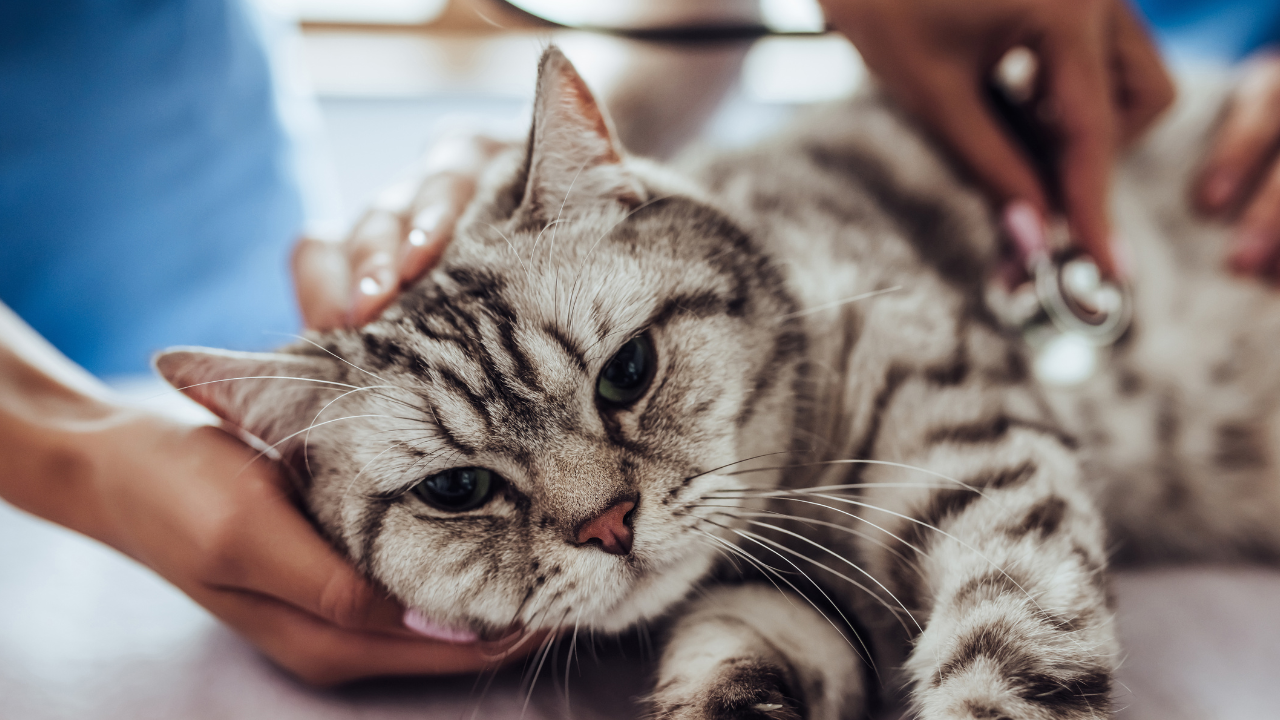
It's Feline health month. I thought it would be a good time to talk about important considerations to keep our cats as healthy as possible. The best approach is a proactive one in which we take certain precautions to decrease the risk of health issues to prevent disease or intervene early in the path of any disease.
I firmly believe the cornerstone of feline health is a healthy diet. In this article, we'll explore the essential steps necessary for maintaining your cat's health and well-being, including discussing diet, dental health, veterinary screenings, environmental conditions, and enrichment activities that are important for their health and well-being.
First off, let's talk about diet and nutrition. Cats are carnivores, so their diets should include mostly protein, followed by fat and a few carbohydrates. Canned or fresh food is best suited to meet these needs. In addition to the issue with carbohydrates, dry foods do not contain enough water for health. Cats on dry or dehydrated food are chronically dehydrated because they have low thirst drives by nature.
You can argue that virtually any disease in cats can be prevented or alleviated by a species-appropriate diet. Many cats that eat kibble become obese leading to issues such as:
- diabetes and metabolic syndrome
- hepatic lipidosis
- pancreatitis
- obesity
- dental disease
- inflammatory bowel disease
- arthritis
- gastrointestinal diseases, constipation
- dermatological diseases
- cancer
- decreased lifespan
- Respiratory and cardiac issues that render them poor anesthetic candidates
Kittenhood vaccines are likely to impart immunity for most of their life. Hence, these are important as this is when the immune system is most vulnerable to deadly diseases and most responsive to providing a lifetime of immunity. Your vet will also screen for parasites and evaluate the risk for other conditions based on their lifestyle. After their kittenhood vaccination series you may discuss vaccination titers with your veterinarian.
After their kittenhood exam series, you will likely return when it is time to spay or neuter your cat. Be careful to monitor their weight after the procedure as it is the most likely time for a cat to become overweight and make fat cells that will scream to be fed for the rest of your cat's life, especially if you overfeed. It's very important to never free-feed dry food. Odds are you will end up with an obese, diabetic cat! So, when your cat comes to you for food, perhaps they are just bored as they are hunters confined to our homes. Consider engaging them in play instead! Don’t give in to food as love. Instead, love them by engaging them in a game of chasing a toy or a puzzle.
You should take your cat for yearly check-ups until six years of age. A good physical exam could potentially detect issues early when they are more amenable to treatment before they become serious issues. You can discuss diagnostic tests and infectious disease risks with your veterinarian and monitor weight trends when they return for their annual visit. It is estimated that 60% of cats are overweight or obese. Early intervention will likely offset diseases worsened by being overweight, such as arthritis, diabetes, and other metabolic issues. Lastly, since many cats do not tolerate brushing their teeth, it's important to have their teeth evaluated by a veterinarian to detect dental issues that arise.
Beyond six years of age, yearly physical examinations and diagnostics to screen for kidney and liver disease and cancer. Also, did you know that over 90% of cats over 12 years have radiographic evidence of arthritis? It's important that they be screened for this so that we can intervene and make sure they are experiencing pain which could significantly impact their ability to jump, play and groom and negatively impact their quality of life. Unfortunately, too many cats suffer in silence from arthritis and there are so many ways that we can help them, but we have to know that they have it first.
Of course, cats should have access to clean litter boxes, and it's suggested that there be at least one litterbox per cat. As cats are prone to asthma unscented and dust-free litter is recommended. Access to clean water without using plastic bowls is important, as the plastic leaches into the water and the plastic can harbor bacteria. Provide access to scratching posts, safe spaces to eat and rest, and opportunities to climb and sleep if they like.
Remember that a human equivalent is a high school graduate at one year of age! That's a lot of years to cover over a year. Think of how often a little person would visit the pediatrician in 18 years. After that, it's about four years for every human year. So you get the point...partner with a veterinarian so that you can ask questions about your cat's unique circumstances and be proactive with their health.
In conclusion, following these essential steps for maintaining your cat’s health is important throughout their life span—from kittenhood through their senior years—so that you can detect and treat issues early on and ensure them the best quality of life into their golden years.










